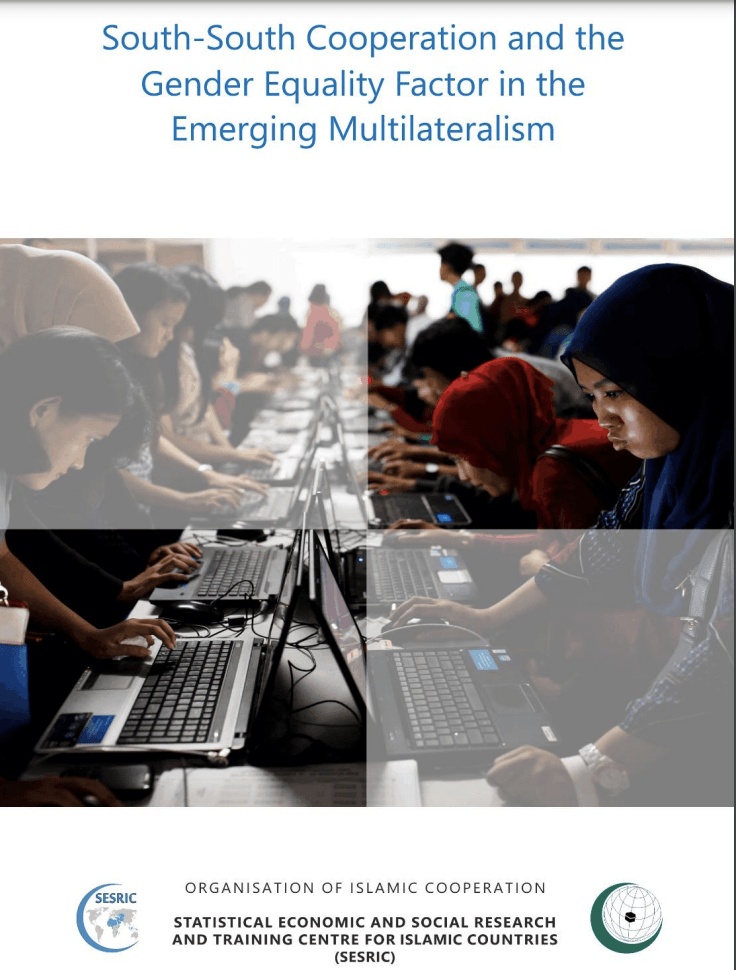This thematic paper on “South-South Cooperation and the Gender Equality Factor in the Emerging Multilateralism” was published by Statistical, Economic and Social Research and Training Centre for Islamic Countries (SESRIC), in collaboration with the United Nations Office for South-South Cooperation (UNOSSC). The paper highlights the potential of South-South cooperation (SSC) in catalysing efforts towards the recognition of women’s role in sustainable development and the achievement of gender equality in the Global South.
The paper is structured around five sections. The first section defines South-South cooperation (SSC) using examples from the Global South. The second section sheds light on the historical evolution of SSC and its role in the search for an agency in the Global South. The third section of the paper looks at how SSC, particularly multilateral approaches to SSC, can improve gender outcomes when it comes to gender-based budgeting; gender rights; education; climate change; food systems in the global South; migration; intellectual property rights, indigenous knowledge, and development; data, evidence-based analysis and planning; and the private sector. The fourth section deconstructs the role of gender in development cooperation, particularly in reference to political economy, democratization, and humanism in the Global South. And lastly, the paper ends with a conclusion section.
By drawing upon the experiences of women-led initiatives in various spheres of society, this paper encourages development partners and stakeholders in harnessing SSC to improve institutional expertise, guide policy development, and program implementation processes at local, national, regional, and international levels.

